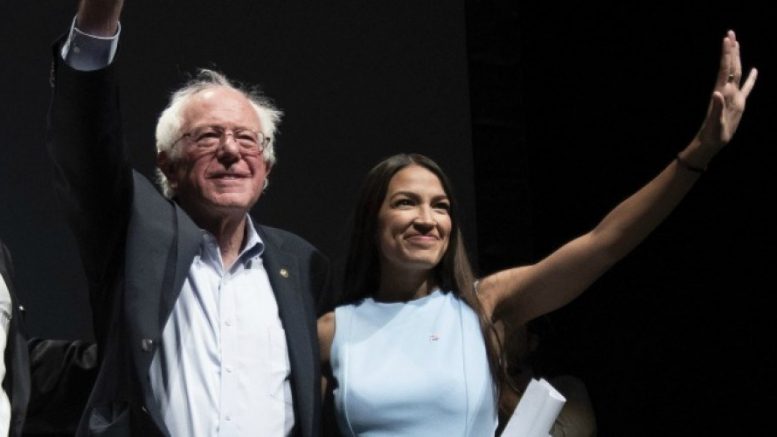This article appears in the current issue of Solidarity (30 October 2019). Click here to see the whole issue (PDF).
According to most polls, Americans have had enough of Donald Trump. A majority wants him impeached. And most voters say they will vote against Trump in November 2020.
Despite those polls, many are terrified that Trump might somehow win re-election. For them, the candidate who deserves our support is the one most likely to beat him. Little else matters.
According to a summary of all recent polls on the RealClearPolitics website, Trump would lose badly to any of the top three Democratic candidates were elections held today. Biden would beat him, Warren would too and so would Sanders. And yet according to Democratic Party “moderates” the party would be taking a real risk in nominating the democratic socialist Sanders.
For Democratic voters, this is the strongest argument against Sanders. He is unelectable, they say.We all love Bernie’s ideas, of course, and in an ideal world we’d support him, but we need a mainstream moderate like Joe Biden to beat Trump.
This, however, is a false choice. Sanders not only has the best politics of the leading Democratic candidates, but also has the best chance of defeating Trump. And we know this for several reasons.
First of all, the polls show that he, like Biden and Warren, would trounce Trump in a general election. There is no polling advantage to the “more moderate” candidates in this respect. The RealClearPolitics average shows Biden defeating Trump by 6.7%, while Sanders would win with 6.5%. (Warren is a few points behind.)
To beat Trump, Sanders first has to become the Democratic nominee. And to do that, he needs to defeat Biden and Warren – and here the polls are less encouraging. Many of them show Sanders in third place, particularly in the early battleground states.
But those polls have fluctuated wildly over the last few months, most notably with the spectacular rise of Elizabeth Warren and the slow decline of Biden’s campaign. In one recent national poll (Emerson), Sanders was just two points behind Biden. In polls like that, Sanders is within the margin of error of winning.
Among young voters (between the ages of 18-29), a recent poll showed Sanders winning an astonishing 45%. Warren and Biden between the two of them could barely muster 29%.
There are also measures other than polls to estimate the strength of a campaign. One of those is fundraising.
In the last quarter, according to reports that all the candidates are obligated to file, Sanders raised $25.3 million in 1.4 million individual donations. That’s more money from more individuals than any other Democratic candidate. As a result, he has an enormous amount of money to continue fighting the campaign right up until next summer when the Democrats finally choose their candidate.
Sanders’ fundraising illustrates an important point about this election that we saw in 2016 as well. There’s an “enthusiasm gap” between the Sanders campaign and the others. When Sanders held a rally last week in Queens, New York to showcase the endorsement of Alexandria Ocasio-Cortez, the audience was in the area of 25,000. No other Democratic candidate has had crowds even close to that size. It reflects the size of Sanders’ supporter base, which is enormous, part of which he inherited from his campaign four years ago.
So, can he win? The short answer is maybe. He has the money and the base of supporters, many of them young and enthusiastic. He is also as strong, if not stronger, than his Democratic rivals as a candidate to face Trump.
But he is up against a field of well-funded and effective politicians and a largely hostile media, who seek to portray him as someone who cannot win.
He will win if he can translate those millions of supporters into actual votes, first in the early primary states of Iowa, New Hampshire, South Carolina and Nevada. Turnout, especially among young and working class voters, is key. If Sanders can win one or more of those states, he has a real shot at the nomination, and the presidency.
